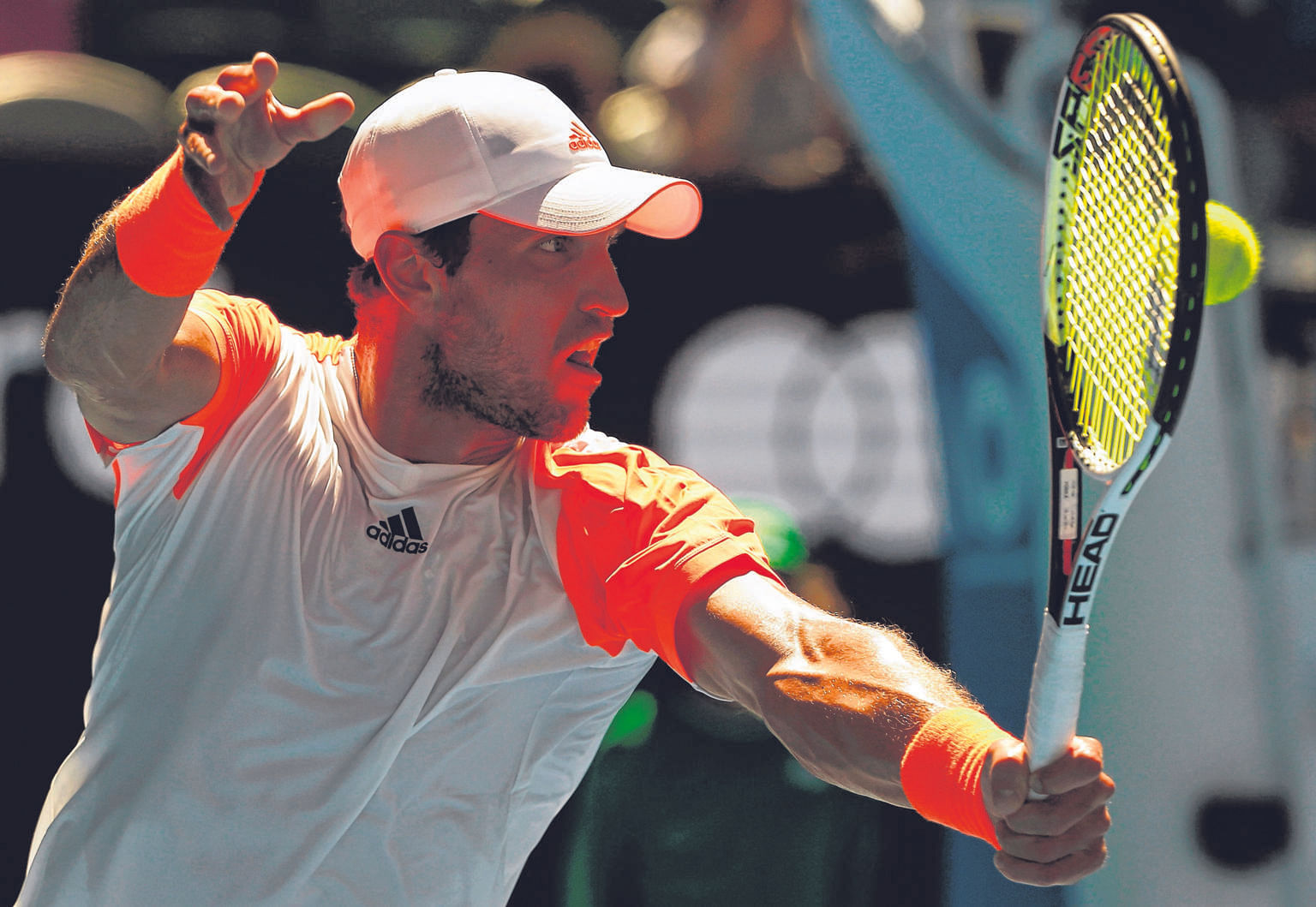"Never play anything the same way twice," said that great trumpeter Louis Armstrong, but tennis players don't care much for jazz. They're mostly classicists who stand at the baseline and play the same tune. Brilliant repetition is their business, but Mischa Zverev showed us on a stylish Sunday afternoon that there is still place in this game for improvisation.
Zverev disrupted Andy Murray's present by honouring tennis' past. In Rod Laver Arena, in front of 15,000 people, on a court named for a man gifted in net play, he revived an old art form by playing serve and volley all match. In a tournament crammed with oddities, Zverev had created another one: Alphabetically the last player in the draw had knocked out the player who is numerically the first in the world.
In a lateral game, Zverev chooses to move forward; in a low-risk sport, he walks a high wire. He turns tennis thinking upside down with his style and yet did it so well that he turned a champion inside out. People use serve and volley as a surprise tactic, but he is surprisingly watchable because he has made it his entire strategy.
The Scot played three serve and volley points all match and won two; the German did it 119 times and won 70 of those points. In his previous match, the third round, he served and volleyed 59 times. Of his first two contests there is no record of this statistic at all: Since Zverev, world No. 50, is a lower-ranked player, dismissed to the outer fringes of this complex - his first two rounds were on courts 14 and 8 - there was no one to keep extensive statistics on him. Perhaps he was simply not expected to come so far.
Now everyone has taken note. For this was an old-fashioned day of old-fashioned shots which must have particularly stirred men with greying hair. John McEnroe must have smiled at that swinging lefty serve, Pat Cash at the stretched volleys, Ken Rosewall at the sliced backhands, Boris Becker at the chipped and charged second serves. All together, on a summer's day, it was too much heat for Murray.

Zverev's game was athletic, effective and dramatic as he bent, lunged and stretched to show off his feel, timing and love for angled volleys, low volleys and reflex volleys. Murray shook his generous head and said: "I don't think it's so much someone necessarily coming in. It's the shots he was coming up with when he did come forward. He came up with some great pick-ups."
Murray would pass him and yet Zverev kept coming to the net but then this method is built on faith and conviction. People don't play it because modern players, armed with new strings, can hit controlled passing shots in a strong gale. But people don't try it because it's a long and painful education.
As Zverev said: "I always say it takes longer to develop a serve-and-volley game because eventually you're going to get passed a lot, especially when you're younger and you play the top guys.
"Like what happened to me two weeks ago in Brisbane against Rafa. He killed me 6-1, 6-1. I really felt like I had no chance. I feel if you're younger and you feel something like that on court you get discouraged quite easily. You change to, 'Let's stay on the baseline'."
But Zverev believed in his game and yet he conceded that yesterday he had no other game. "I knew there was no plan B," he said. Defeating Murray from the baseline was impossible; serve and volleying all day was only improbable.
It was a joy to watch only because it is so rare to see. Indeed, it is 15 years since a serve-volleyer won a Grand Slam title (Pete Sampras, US Open 2002) and yesterday a writer referred to the style as "unorthodox". Yet now we know what we are missing, for a man at the net versus one at the baseline is the ultimate confrontation: It is the entire art of tennis presented for our pleasure.
But this was not just a day that captured a style of play but also a type of man. Zverev, 29, is not his brother, Alexander, 19, the shining young tyro, but instead the beaten-up pro. Injuries visited him (fractured ribs, herniated disc in the back, fractured wrist), his motivation shrank, his work ethic dimmed and his ranking dipped to No. 1067 in March 2015.
And yet players find strength from somewhere - Zverev from his brother - they try again, their body holds, their dreams revive. They may not ever be great but sometimes they forge the greatest of days. For Zverev it was one sublime match, one chance to show his skill to a bigger world, one encounter with a player who is his contemporary at 29 and also his better but on this day was not his equal.
At the last changeover, Zverez adjusted his wristbands carefully as if protecting the part of his body which had worked the best. Then on every serve he charged in. His reward for his creativity is a meeting with another maker of minor miracles. Fellow who can also volley a bit. Is on a comeback, too. And is a sort of old-fashioned jazz man as well. Chap called Federer.

